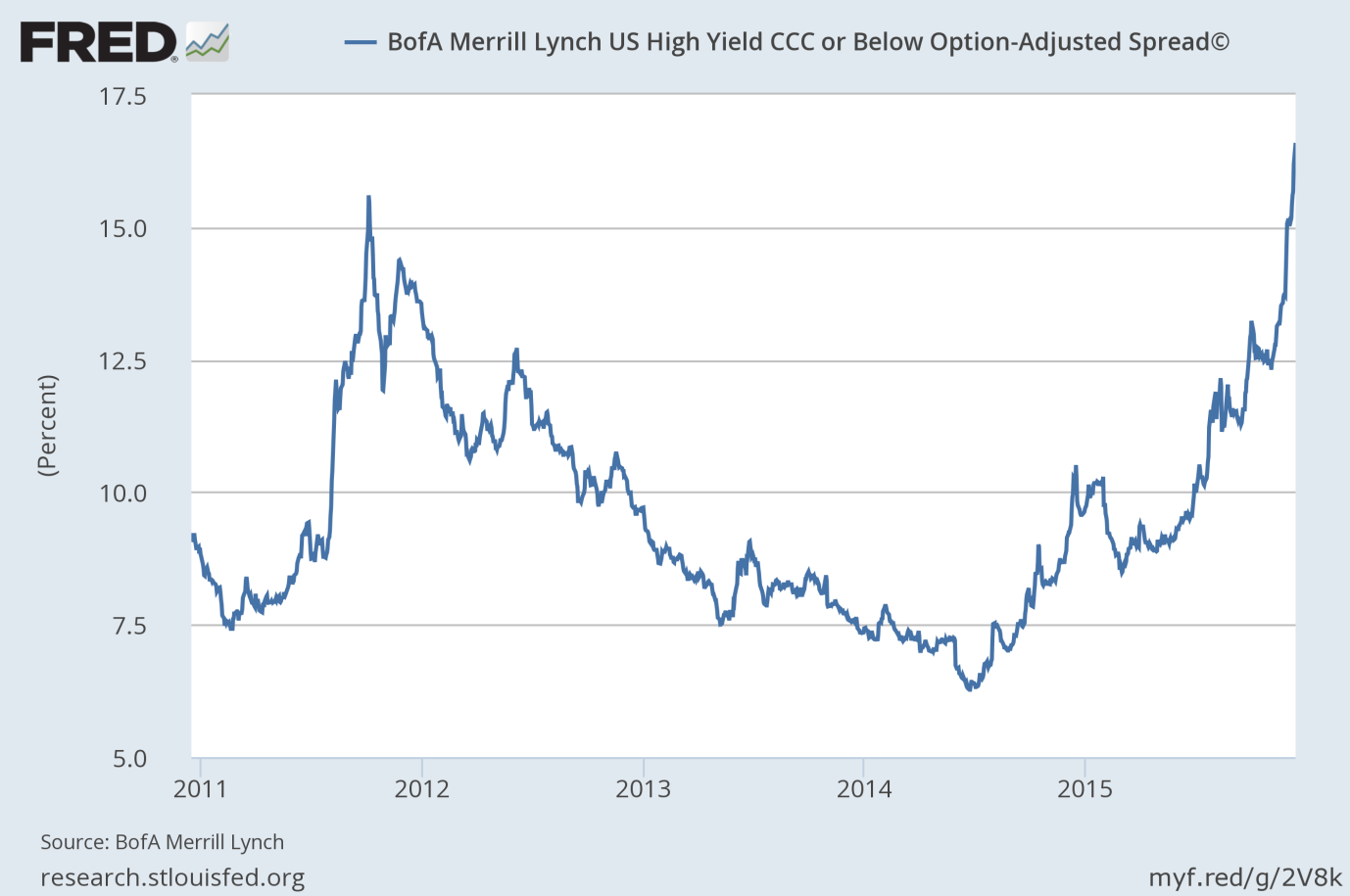Junk bond markets are in a veritable melt down as the carnage stretches to a third straight day of falls that included the collapse of at least three credit funds. However, many within the market are now asking whether the carnage will become a collapse following a hike in the Federal Funds Rate.
The growth in the high yield debt markets has exponentially increased as the increased capital from quantitative easing sought yield. Subsequently, the junk bond market has been a strong beneficiary of monetary easing and capital has flowed strongly into the debt sector.
However, as energy and commodity prices slumped, so did the solvency of many companies within the commodities sector. Subsequently, if rising borrowing costs hit the already debt laded companies, a rolling cavalcade of defaults could be on the way.
In light of the impending hike to the Federal Funds rate, many investors have become spooked and have started exiting their junk bond positions. Exacerbating the unease is the collapse of Third Avenue Management and Stone Lion Capital Partners which just announced that they would no longer be honouring withdrawal requests as their cash positions and solvency positions worsened.
Subsequently, investors are now taking note of the caution and there has been some estimates bandied about by market strategists that predict an unwinding of between 10 and 15 percent of the positions in the highest risk instruments. In fact, the growing cacophony of voices from the likes of Carl Icahn and Bill Gross suggest there is significant trouble ahead for the junk bond sector.

Subsequently, expect a rough ride as the junk bond market adjusts to the new normal of rising borrowing costs and decreasing liquidity within the market. The next 12 months is likely to see quite a few funds holding large amounts of high yielding bonds finding difficulty in meeting their solvency standards. This is likely to be compounded by the fact that reduced liquidity within the market could find difficulty in attracting new capital in to the market.
Overall, the flow of QE has significantly distorted both yields and term premias within the junk bond market. The market was always going to face a rebalancing and that period is about to commence with a tightening in monetary policy leading to increased borrowing costs. Subsequently, the next 6 months are likely to be a dramatic period for the debt markets as many companies and funds are going to find it increasingly difficult to fulfill their obligations.
